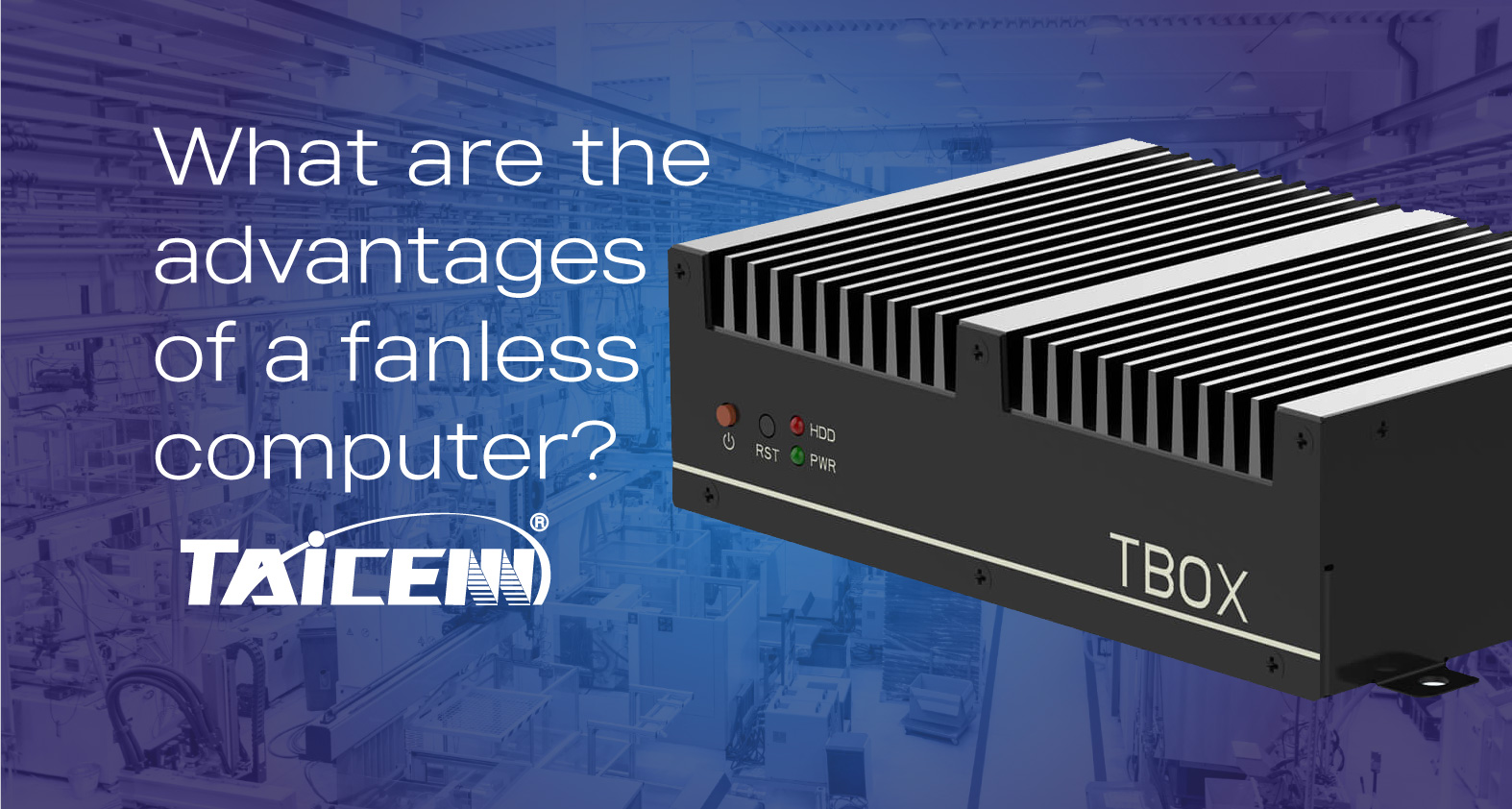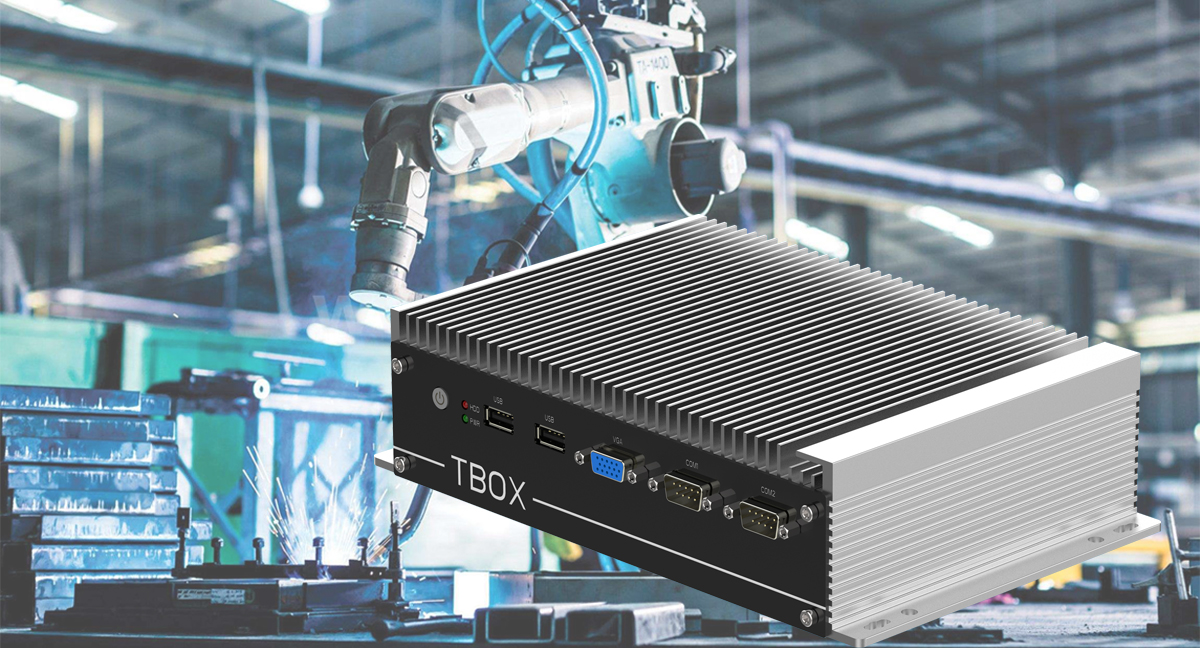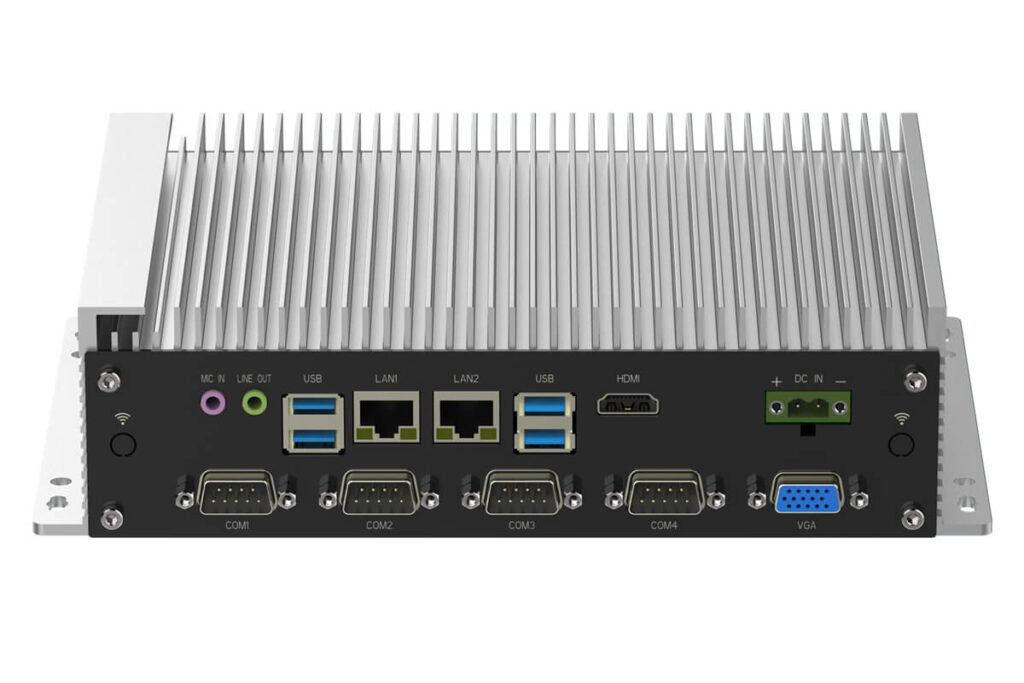Industrial Fanless computers use heat-sinks to transfer the heat of internal heating components (such as CPU and silicon) to the computer’s aluminum-alloy housing. The aluminum housing acts as a big heat sink to dissipate heat and transfer it away from the computer. Industrial fanless computers do not use fans to maintain cooling. In other words, if your computer overheats, you don’t have to worry about damaging it.
This is because almost all modern CPUs are equipped with a technology called dynamic frequency scaling. When the processor starts to generate too much heat, it will basically slow down the processor to avoid damaging itself.
1. Silent operation
The first benefit is that passively cooled computers are silent because no fan makes noise when pushing air through the system. Industrial fanless computers use a radiator to transfer heat from internal heating components to the outside of the computer system housing, thereby keeping it cool.
In addition, the use of solid-state drives (SSD) in industrial fanless computers further reduces the noise generated by the system operation. Replacing a hard disk with a solid state drive can reduce noise, because there are no moving parts inside the SSD storage to generate noise. Instead, the data is stored on a memory flash chip, which can eliminate any noise from the system.
The deployment of some industrial fanless computers requires silent operation of the computer system, because any noise will be distracting. This situation includes hospitals, libraries, laboratories, and other environments that require quiet operation.
2. Reliability
The second benefit is that industrial fanless computers are designed and manufactured in accordance with industrial standards, which are stricter than consumer computers. The industrial fanless computer request them to run longer and faster than consumer computers.
In addition, since fans are often the failure point in many computers, solid-state drives are used in computer systems by completely excluding moving parts from the system.
This reduces moving parts and improves reliability, because solid state drives have proven to be more reliable than hard drives. According to analysis, hard drives often fail within 300,000 hours of use, while solid state drives often fail after 1.5 million hours of use, making them a perfect replacement as the storage.
3. Better Vibration and shock feature
The third advantage of industrial fanless computers is that they can withstand better vibration and shock than ordinary consumer computers. By designing and manufacturing a rugged mainboard, it can withstand excellent shocks and vibrations in industrial applications.

4. Compact size
Industrial fanless computers tend to have a smaller dimension than large consumer computers, which makes them an excellent choice for placement in small or compact industrial cabinets or devices.
Since no cooling part is specially required, they can be easily mounted in manufacturing equipment or machinery.
5. Flexible deployment
Because industrial fanless computers require less power than consumer computers, this makes them a good choice for deployments in the projects.
So, if you want to look for industrial capability from a computer, but you also need it to use very little power. A rugged industrial computing solution will meet the needs of low-power embedded-level processors, closer to data and IoT sensors.
A fanless computer can be an ideal solution for you to adapt to unstable environments.
If you are working on any application that we can help you with or have any question, please let us know. We offer free technical support to help you choose the best equipment for your application.
Contact us:
Email:sales@logicbus.com and support@logicbus.com
Whatsapp: 55-5431-6718
Online chat:Start conversation





